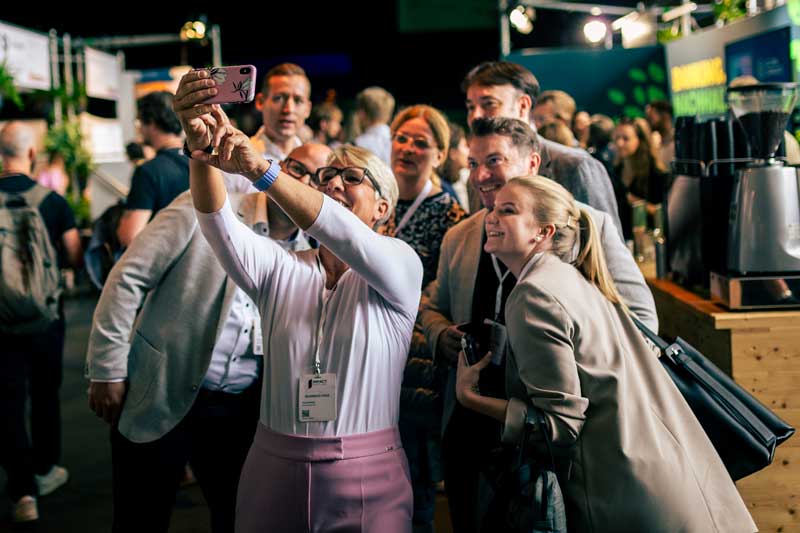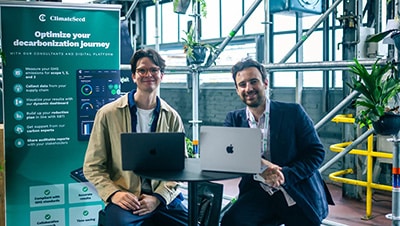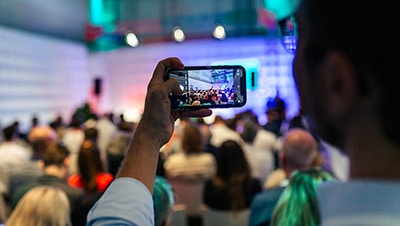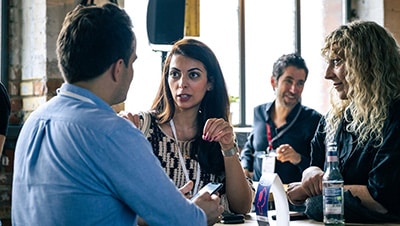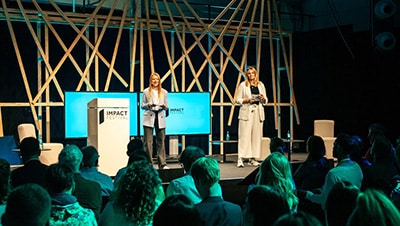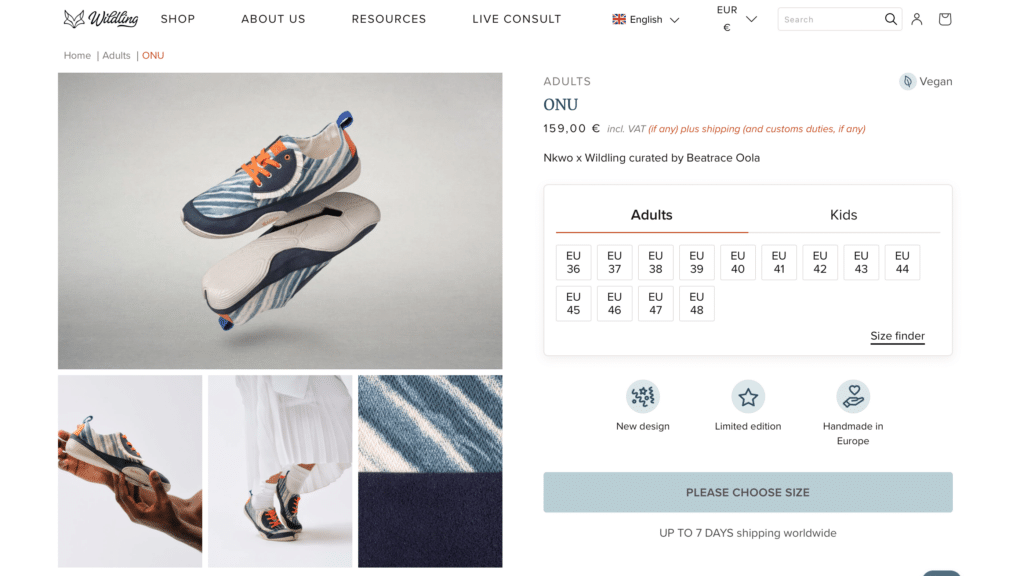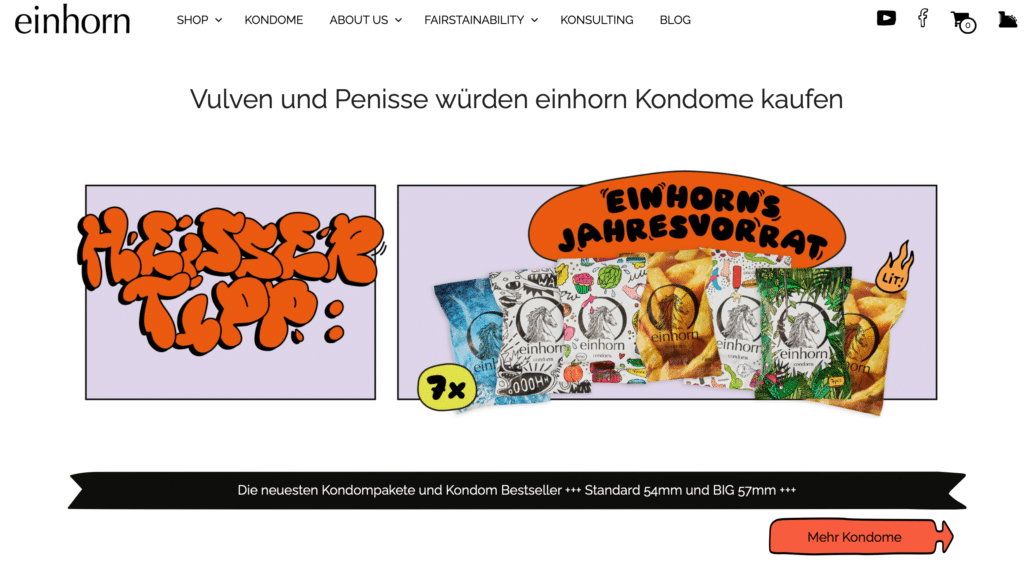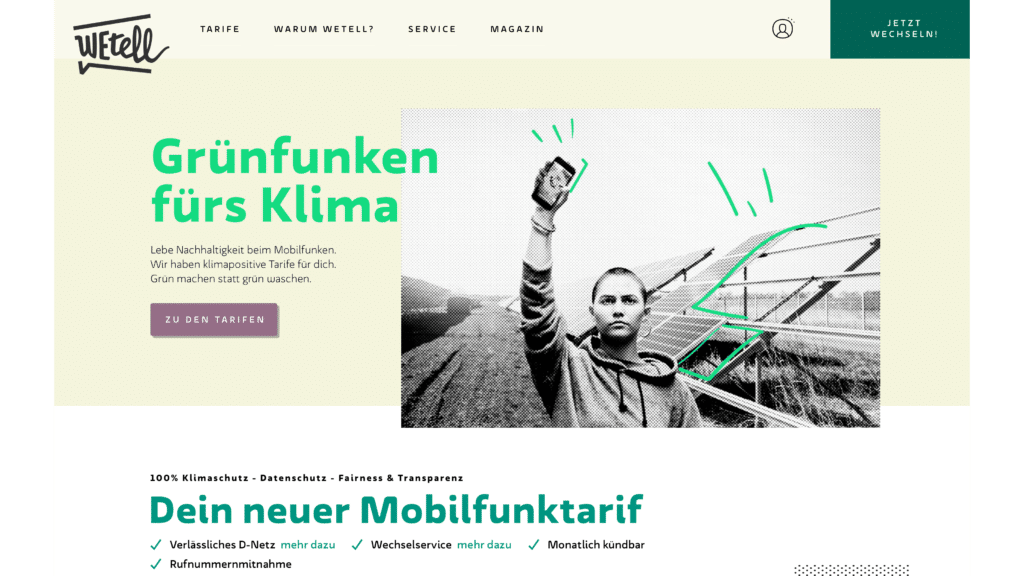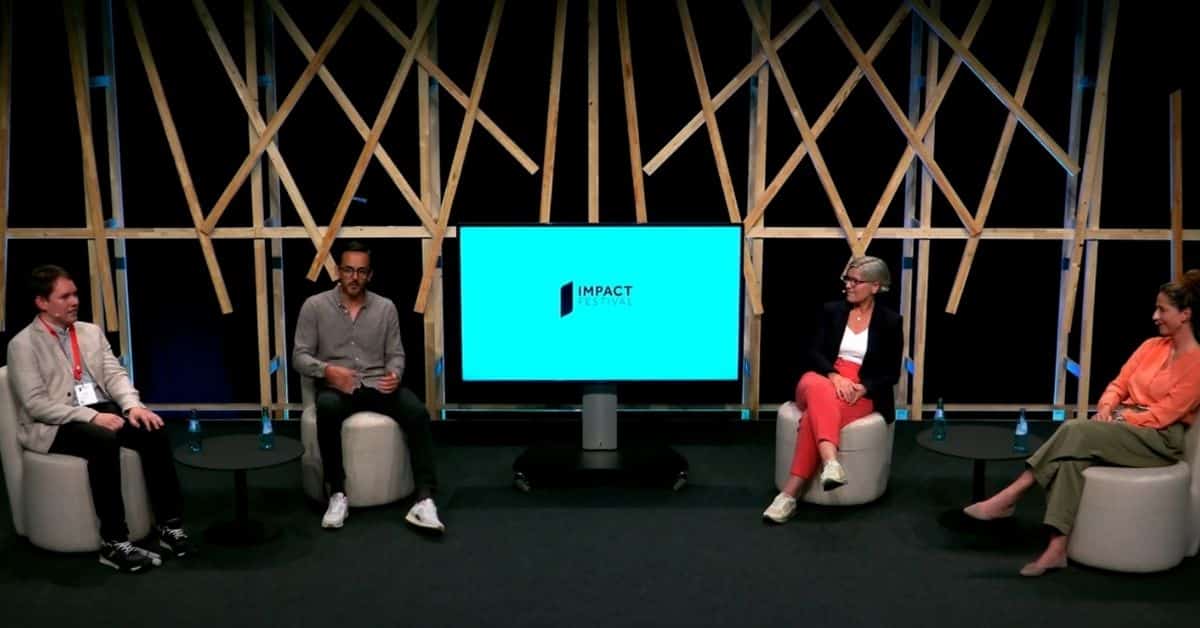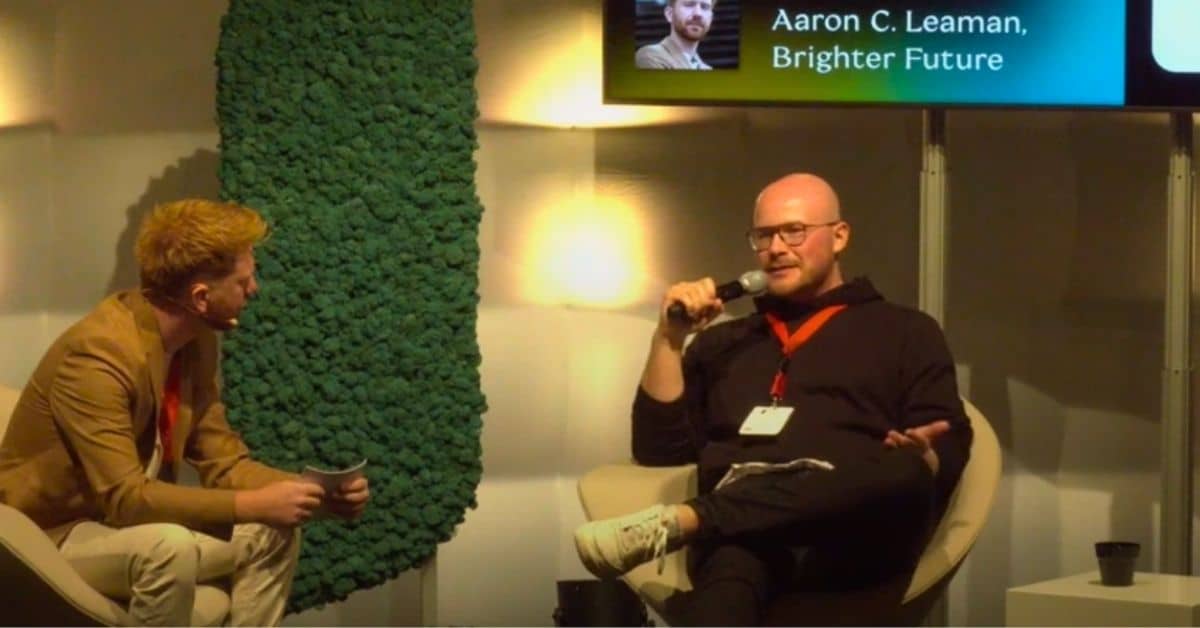The current global economic systems have led to a radical exploitation of our planet’s natural resources and are at the root of many world crises. Based on extraction and depletion, they are short-sighted, linear and degenerative. This has made them highly vulnerable to shocks on the one hand, and unsuitable for the lives of 10 billion people within the planet’s boundaries on the other.
So there is no way around the transformation of economic systems. The future of our planet will depend to a large extent on the regeneration of our natural resources and the transformation of resilient natural, but also social systems. At the same time, nature must be preserved where biodiversity is still intact. These goals are pursued by the concept of the regenerative economy, which has gained importance in recent years. It assumes that the economy must move toward or return to a more nature-based, resilient, and regenerative approach.
What is "degenerative"?
Before we delve deeper into the concept, we should clarify what “degenerative” means. The term refers to a process or trend of decline or deterioration over time. In the context of ecology, a degenerative process can refer to the decline or degradation of natural systems, such as ecosystems, species populations, or habitats. Degenerative processes can be caused by a variety of factors, including climate change, habitat destruction, over-exploitation of resources, and pollution. The term “degenerative” highlights the negative impacts of human activities on the environment and the importance of addressing these impacts to create a more sustainable and resilient future. Ecological and social degradation also leads to compromised health and well-being and a loss of opportunities, possibilities, and individual agency.
Regenerativity versus Sustainability
The idea of the regenerative economy is not only not to be “degenerative” but also to go beyond the approach of sustainability. The latter was introduced in 1987 as a way to meet our own needs without compromising the ability of future generations to do the same. The dominant understanding of business sustainability still emphasizes the organization and its business case, seeking strategies for less harmful social and environmental practices (“do less bad”) to achieve competitive advantage rather than “doing more good.”
Sustainable companies aim to maintain the current state of natural systems in the present: they focus on reducing negative impact, preventing further degradation, and conserving resources. Their efforts have an inherent limitation: they usually are concerned about making processes and products “more efficient,” using fewer resources for each product produced, but at the same time growing as a company and selling more products and services. So these companies may have ‘greener’ products but still create damage. At best, they strive to offset and compensate for the negative impacts of their value creation (“net zero”).
In the regenerative movement, this is no longer satisfactory; more than preservation at the current level is needed. Humanity must move to “giving back” by building businesses and institutions that create the conditions for life to restore and thrive (see Figure 1).
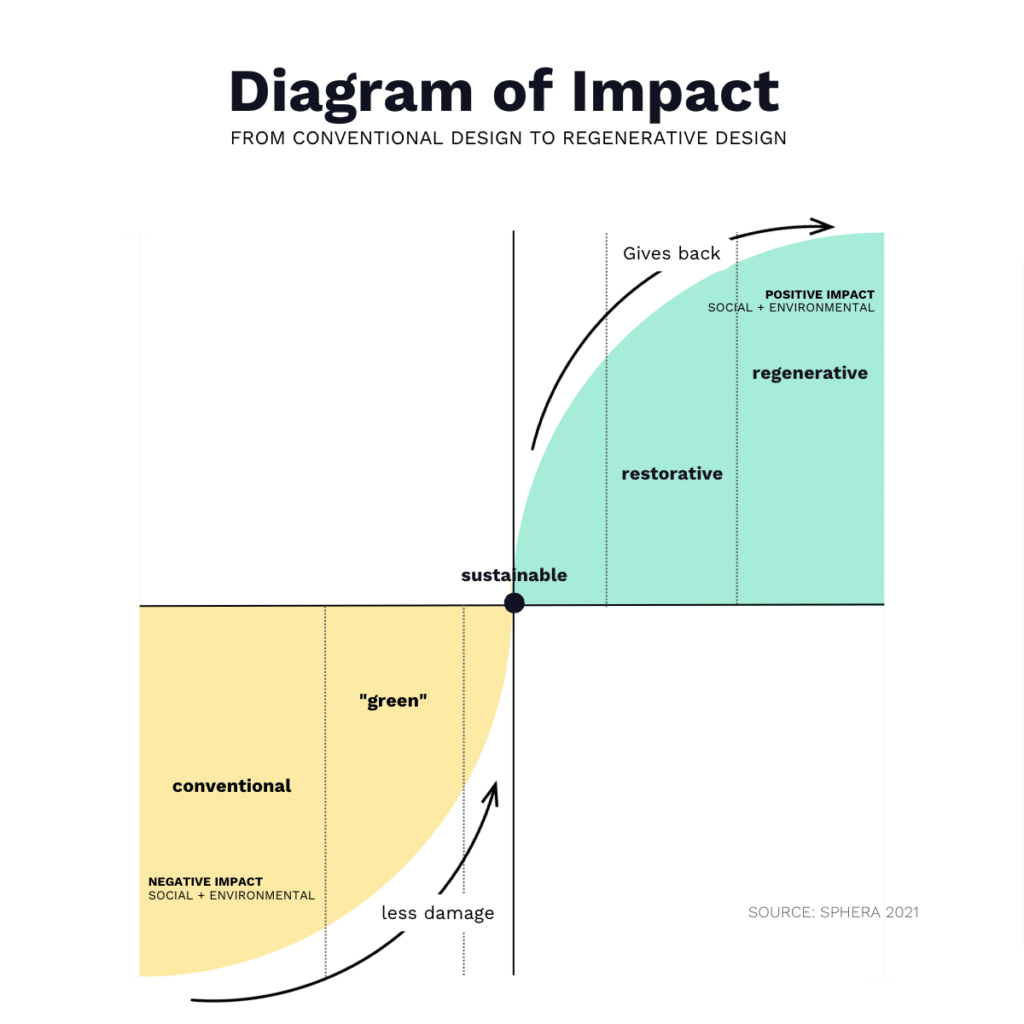
What is a regenerative economy?
There is no single definition of the regenerative economy. It is a concept that has developed on the fringes of new economic thinking, initially in the field of urban planning and the built environment – attuned to the principles of nature and its relevance to financial, economic, and industrial systems. Regenerative sustainability can be defined as “a co-creative partnership with nature […] to restore and regenerate the global social-ecological system” (du Plessis, 2012: 19). Here, human activities are seen as an integral part of the larger social-ecological system. Within this system, there are mutual feedback and interdependencies among all elements. Regeneration aims to “cultivate relationships that create both life-sustaining and life-enhancing conditions for the global human community within a healthy ecosystem” (Zhang and Wu, 2015: 39). Regenerative economics can be viewed as applying the natural laws and patterns of systemic health, self-organization, self-renewal, and regenerative vitality to socioeconomic systems. The importance of considering the economic system as part of an overall system rather than separate from socio-ecological systems becomes evident.
So regenerative economics follows a holistic, systemic approach that recognizes the interconnectedness of all aspects of a system. It acknowledges that the economy is embedded in and dependent on the natural environment and must function within the limits of natural systems. Small changes in one part of the system can have significant
effects on other parts of the system. Systems thinking is essential to a regenerative economy because it helps identify the connections and interdependencies between different parts of the system and how they can be integrated and optimized to positively impact the economy, the environment, and society. It can also help identify feedback loops, leverage points, and unintended consequences of specific actions or interventions.
Examples of a regenerative business
In the first part of this post, we introduced the concept of a regenerative economy and explored its fundamental principles. In summary, the idea emphasizes restoring and regenerating the global social-ecological system through a co-creative partnership with nature. It aims to create life-sustaining and enhancing conditions for the international human community within a healthy ecosystem. Regenerative economics applies natural laws and patterns of systemic health, self-organization, self-renewal, and regenerative vitality to socioeconomic systems. It recognizes that the economic system is part of an overall system and should not be separated from socio-ecological systems.
This model contrasts the dominant economic paradigm, which has led to widespread environmental degradation, social inequality, and economic instability. In this part, we will examine examples of companies that have embraced regenerative practices and are making significant strides toward a more sustainable and equitable future. These companies represent diverse industries and approaches, but they all share a commitment to regenerative principles and a vision for a more resilient and thriving economy.
Wildling: Pioneering sustainable regenerative business for all
Wildling is a shoe company founded to create shoes that allow natural movement, regenerate the body, and connect with the environment. Wildling aims to translate the regenerative impact of its boots to its organization and how they do business. The company has more than 280 people, with 73% women in leading positions, and is fully bootstrapped without venture capital. Wildling believes that, as a company, they must take responsibility and strive for solutions for the biggest challenges of our time, including climate change and social injustice. They understand that using environmentally friendly materials in their shoes is not enough, and they want to have a positive impact with every step they take. In their efforts to become a regenerative company, Wildling focuses on three main roles: innovating and collaborating, using their money wisely, and leading by example.
In terms of innovating and collaborating, Wildling is focused on developing business models that help others embark on the journey to a regenerative business. For example, they are working on making the outer sole of their shoes recyclable and sharing this knowledge with other brands. They are also developing hemp as an upper material for their shoes, which has much lower water consumption than cotton and can be grown by local farmers in Europe using regenerative agriculture practices. These efforts are based on intensive collaboration between different actors, including farmers, researchers, suppliers, and Wildling as a brand. Their goal is to build a completely regenerative value chain by 2031. This means not only sourcing their raw materials, such as those used in the agroforestry system, but also developing a holistic working model that considers the entire lifecycle of their products. They are working to establish environmental standards with their suppliers on an equal footing and taking into account the extended product life of their offerings. Ultimately, their aim is to create a compostable shoe that can be recycled again and again.
They recognize the complexity of their value chain and are working to ensure that all of their raw materials are sourced transparently and sustainably. For example, they have partnered with Rewilding Portugal to source wool from waste products and support local shepherds’ livelihoods. By working with local partners, they can ensure their supply chain is as ethical and sustainable as possible. Wildling also believes that companies have enormous financial leverage and are thinking carefully about what regenerative projects they could finance through their investments. They are also examining issues around money and how their profit is allocated between shareholders and stakeholders.
Finally, Wildling is leading by example by aligning its core business step by step to regenerative principles. They aim to become a role model in the transformation towards a regenerative economy, which requires much more than just focusing on the value chain. It also requires accepting limitations and regenerating team resources. Wildling is creating an environment based on trust, strength-based individual development, and meaningful work, which is the basis of a high degree of self-determination. Since the beginning, most of the team has worked 100% remotely, allowing them to work independently of time and place.
Der IMPACT TALK ist die Podcast-Reihe zum Impact Festival. Hier dreht sich alles um nachhaltige Technologien, Innovationen und die Transformation in Unternehmen. Was bedeutet nachhaltig eigentlich? Welche Innovationen, Technologien und Services ermöglichen Unternehmen nachhaltiger zu werden? Was hemmt und was fördert unsere Transformation? Wie können wir dazu beitragen? Diese und weitere Fragen diskutieren und hinterfragen wir mit Gründer:innen, Expert:innen und Visionär:innen in unserer wöchentlichen Podcast-Serie IMPACT TALK. Weitere Infos findet Ihr unter: https://impact-festival.earth/
Kurze Lieferkette, menschenwürdige Arbeitsbedingungen, familienfreundliche Arbeitskultur, Sourcing von klimaschonenden Materialien : wie sieht der Alltag eines regenerativen Unternehmens aus? Bekommt darüber hinaus auch transparente Einblicke über die Herausforderungen, die Unternehmen mit der jetzigen Wirtschaftslage begegnen, von Anna Yona, Geschäftsführerin und Gründerin von wildling shoes.
Durch diese Folge führen Dirk Vongries, Geschäftsführer und Senior Consultant der CORPASS GmbH und Mara Steinbrenner, Co-Lead und Start-up Managerin des IMPACT FESTIVALs.
Seid Teil des IMPACT FESTIVALs und erhaltet mit dem Code Impacttalk15 jetzt 15% Rabatt: https://impact-festival.earth/ticket/
Foto : Credits to Cherie Birkner
Overall, Wildling believes that if companies understand these three roles, they can use the power of their economic activities to benefit all – their employees, partners, community, and the environment. While Wildling is still at the beginning of its journey to becoming a regenerative company, they are committed to questioning itself and the status quo, daring to do something new, and breaking up existing structures to positively impact the world.
Einhorn: Transforming business with its ethically-conscience regenerative value chain
Einhorn is a German company that produces sustainable and innovative products for personal care. Founded in 2015 by two friends, Waldemar and Philip, Einhorn has quickly become a leading brand in the sustainable products market. Einhorn’s product range includes condoms, menstrual cups, panty liners, and more. All products are made from natural and environmentally friendly materials and are packaged in plastic-free and biodegradable packaging. Einhorn’s commitment to sustainability and social responsibility has earned the company a loyal customer base and numerous awards, and its innovative approach to business has inspired other companies to follow suit. The company has challenged every status quo and built a business from scratch that reflects its values. The company’s philosophy is based on “unicornique” and “fairstainable.” “Unicornique” is made up of the words “unique” and “unicorn” and stands for the idea that Einhorn products should be fun, unique, and have a pinch of love in them. “Fairstainable” is a combination of the words “fair” and “sustainable” and represents Einhorn’s commitment to building a regenerative company that puts people and the planet first. These values guide all of Einhorn’s decisions and actions. Einhorn’s magic formula for success is “love, design, trust, and communication.” This formula represents Einhorn’s positive approach to people and shapes the company’s structures and processes.
Einhorn believes that the key to building a regenerative business is to put people at the center of everything they do. This means creating a workplace where people want to work without disconnecting between employee and employer. Einhorn’s approach to business is based on the “new work culture”, where the way people work together is as important as the bottom line. Einhorn offers employees as much vacation as they want, allows them to work from home, and has a democratic pay system. There are no hierarchies, and the company is self-organized. There are hardly any rules or targets. Einhorn sees failure as a positive challenge for the individual, not as a threat to the company. The company encourages its employees to make decisions based on their ethical conscience and sense of responsibility. Einhorn does not use traditional business metrics such as KPIs to measure the company’s success. Instead, it relies on the principle of “it has to feel right”, meaning that all decisions and actions should be guided by a sense of what feels right and good.
The company is committed to building a regenerative value chain that is fair and sustainable. Einhorn has created the Regenerative Rubber Initiative, which aims to manage rubber as a resource in a regenerative way. Einhorn is working to identify rubber farmers who grow rubber sustainably and fairly without using chemicals. The company is also exploring ways to protect biodiversity and support agroforestry systems with intercropping and beehives. Einhorn’s journey to becoming a regenerative company is challenging, but its success shows that a different way of doing business is possible. Einhorn’s dedication to the environment and its community is evident in its innovative product line, which has helped to reduce the use of harmful chemicals and plastic waste in personal care products. Their focus on designing unique and desirable products fairly and sustainably while prioritizing their employees’ well-being has led to a thriving business model that inspires others.
Wetell: Regenerative business caring for sustainability, climate and privacy
Wetell is a German mobile company founded in 2019 by a group of sustainability enthusiasts who wanted to create a mobile provider that aligns with their values. Their goal is to create a sustainable and socially responsible mobile provider that works for the common good by pursuing the following three visions:
Vision 1: Reaching people with sustainability.
Wetell’s business model is focused on sustainability and environmental protection. They believe that mobile communications can be a vehicle to promote sustainability, and they are committed to creating a company that aligns with this conviction. Wetell strives to combine the best mobile communication services with sustainability without sacrificing quality. They offer reliable D-Net quality and person-to-person services. Climate protection is a top priority for Wetell. The company has already been climate-neutral (Scope 3) since 2020 and continues to work on becoming climate favorable. Wetell is committed to reducing emissions by building solar plants that produce more green electricity than all customers need for their mobile communications. The same amount of emissions is additionally offset by plant carbon. Data privacy is a key issue in the digitalized world, and Wetell takes it seriously. They collect as little data as possible and delete it as soon as possible. No data is used for advertising purposes, and no data is resold. Wetell conducts webinars on data privacy and is considered a data protector. Wetell emphasizes fairness and transparency in their customer interactions. They offer monthly cancellable plans, and relationships should be based on trust, not contract terms. There are no hidden costs or subscriptions forced on customers. Wetell also offers an option where wealthy customers voluntarily pay more, and others pay less to encourage mutual support.
Vision 2: Be a model company
Wetell believes that business transformation should be from maximizing profits to maximizing the common good. They are committed to bringing in as many companies as possible to achieve a sustainable world. They believe power will unfold much faster than we can imagine now if we have success stories to guide us. Wetell has undergone the certification of the Common Good Economy, in which all areas are subjected to an external audit. The company also promotes this to other companies, showing them how to move toward the common good. Wetell is steward-owned, implying that profits remain within the company, cannot be privatized or distributed, and are used for sustainable purposes of the company. Steward ownership also includes the principle of self-determination, which means that only the people who work in the company have voting rights and that the company remains true to its values and cannot be sold.
Der IMPACT TALK ist die Podcast-Reihe zum Impact Festival. Hier dreht sich alles um nachhaltige Technologien, Innovationen und die Transformation in Unternehmen. Was bedeutet nachhaltig eigentlich? Welche Innovationen, Technologien und Services ermöglichen Unternehmen nachhaltiger zu werden? Was hemmt und was fördert unsere Transformation? Wie können wir dazu beitragen? Diese und weitere Fragen diskutieren und hinterfragen wir mit Gründer:innen, Expert:innen und Visionär:innen in unserer wöchentlichen Podcast-Serie IMPACT TALK. Weitere Infos findet Ihr unter: https://impact-festival.earth/
In IMPACT TALKs 3. Staffel wollen wir insbesondere die nachhaltigen Entwicklungsziele der UN (die sogenannten SDGs) ins Licht rücken. In dieser Folge beschäftigen wir uns unter anderem mit dem SDG 7 für “bezahlbare und saubere Energie”.
Heute begrüßen wir ganz herzlich Alma Spribille, die Geschäftsführerin und Gründerin von WEtell, ein Unternehmen, das nachhaltige Mobilfunk anbietet.
Wie schafft man es, ein nachhaltiges Mobilfunknetz zu gestalten? Was bedeutet die Gemeinwohl-Ökonomie für ein neu gegründetes Unternehmen? Wie äußern sich Merkmale der nachhaltigen Lobbyarbeit oder des Klimaaktivismus in einem Start-up? Was heißt konkret Verantwortungseigentum?
Wir tauschen uns heute über diese Themen, mit unserer 2. Gästin der 3. Staffel aus. Dabei bekommen wir fesselnde Einblicke in ihr Engagement für das Klima im Unternehmen sowie auf anderen Ebenen.
Durch diese Folge führt Mara Steinbrenner, Co-Lead und Start-up Managerin des IMPACT FESTIVALs.
_______
00:40 – Bekommt die allerneuesten “Impact Festival News”!
03:58 – Im “Deep Dive” ist es die Gelegenheit u.a zu erfahren wie WEtell sich auf das Lützerath Demo beteiligt hat oder wie ein Unternehmen mit Purpose im Alltag funktioniert.
34:01 – Der heutige “Standpauke” geht zur FDP und der aktuellen Orientierung ihrer Politik.
36:59 – Alma wünscht sich 2 Gäst:innen zum IMPACT FESTIVAL 2023, und zwar würde sie gerne Armin Steuernagel, Co-Founder von Purpose und Aysal Osmanoglu, Vorstandssprecherin der GLS Bank einladen.
_______
Was genau sind die SDGs der UN und was steckt dahinter? Findet mehr Infos hier : https://sdgs.un.org/goals
Mehr Infos über die Gemeinwohl-Ökonomie, könnt ihr hier lesen: https://germany.ecogood.org/
Seid Teil des IMPACT FESTIVALs und erhaltet mit dem Code Impacttalk15 jetzt 15% Rabatt in unserem Ticketshop: https://impact-festival.earth/ticket/
Mit dem Code: WE-GF-XY-7522 bekommen zukünftigen Kund*innen 25€ Rabatt auf ein WEtell Abo.
Vision 3: Lobbying for good causes
Wetell is lobbying in politics for better and more sustainable conditions. They have created a network of sustainable companies that work for a better climate by building solar panels, offsetting, providing better information about emissions, etc. Wetell also participates in actions and protests to positively impact the environment and society.
In summary, Wetell is not just a mobile communication company but an organization dedicated to sustainability. Their three visions guide them on the path to becoming a regenerative company. Wetell wants to promote sustainability in mobile communications, protect the climate, and practice privacy. They also focus on fairness and transparency in their dealings with customers. Wetell wants to be a good company that promotes the common good, personal responsibility, and self-determination.
Through these case studies, we hope to have demonstrated the potential of regenerative approaches to transform the business landscape and create meaningful positive change. By showcasing successful regenerative businesses, we aim to inspire and inform other companies and individuals who want to contribute to a more sustainable and equitable world.
How to develop a regenerative business model
“A regenerative business creates net-positive system value within a safe and just operating space for humanity. Through the pursuit of a societal purpose, it delivers and enables outcomes that are environmentally restorative, socially just, and economically inclusive— creating value for a wide range of stakeholders in its ecosystem. “(BMW Foundation RESPOND, Circle Economy, SYSTEMIQ, 2022: 27)
Regenerative companies take the idea of purpose into the core of their existence. They follow an outside-in logic by recognizing the existing problems and trying to solve them with the power of business. Net positive means they contribute to human well-being and environmental goals. They actively work to protect, restore, and renew both human capital and natural resources. They aim for long-term positive impacts and engage all stakeholders collaboratively. The outcomes of regenerative practices include restoring natural systems, increasing resilience and adaptive capacity, and creating positive feedback loops.

Fundamental steps for a regenerative business model design
Redefining purpose and value
To develop a regenerative business model, companies must (re)define their purpose by asking themselves questions such as (see Figure 2):
- Who do we want to serve, and why?
- How do we contribute to a better life on this planet?
- How and where in our value chains, where with our communities that we engage along the path of our production and products, do we create systemic value?
- Why will future generations praise us, and why will current generations pay for our services?
The answers to these questions should form the core of the company’s purpose and guide all corporate actions.
In addition, a different view on value is needed: companies should focus on creating value beyond the purely financial aspect: Human and environmental benefits should be as significant as economic benefits. At the same time, profit is only a means to an end – the goal (and overall business imperative) is positive societal outcomes.
New metrics and KPIs are required to monitor the success of companies redefining their purpose and value. This means that accounting processes should be adapted to ensure that the social and environmental costs of corporate activities are taken into account as consistently as the financial costs. Methods such as true cost accounting (calculating the impact of operations on natural, social, and economic capital) and natural capital accounting (calculating the stocks and flows of natural resources) are examples of how this can be done.
Acknowledging interdependence
Corporate actions impact not only consumers and shareholders, but also supply chain partners, the environment, and communities far from the company’s headquarters. Therefore, from a regenerative perspective, companies must see themselves as critical and interconnected actors in a larger ecosystem. For this reason, a much larger group of stakeholders should be involved in decision-making: in principle, everyone affected by the company and its operations, whether employees, suppliers, local communities, and of course all natural systems impacted along the entire value chain.
Becoming people- and planet-centric
The transition to regeneration should be collaborative: It requires everyone’s participation and should not be a top-down process. However, it is up to leaders to guide the process and foster a “culture of regeneration”. Internally, they must create a supportive and caring environment, develop communication methods that enable closer collaboration, and empower individuals to thrive in their work environment. Externally, they must adopt a stewardship approach to deliver on the value proposition and positively impact the company’s environment.
So to become a genuinely regenerative organization, it is essential to consider the organization’s internal and external aspects. The internal elements include the mindset and culture of the organization, while the external factors include the value proposition and relationships with the organization’s stakeholders. By considering both areas, organizations can develop a holistic and transformative approach that not only prevents further degradation of natural systems but also actively works to restore and even improve them.
Challenges of adopting a regenerative business approach
Moving to a regenerative company is a transformation process that requires a profound change in worldview and corporate culture. This change can be challenging and involves a transition period during which the company adapts and evolves. Developing an impact model around an existing business or product/service offering is much more complex than building a regenerative business from scratch, partly because of the other stakeholders involved. Nevertheless, even a traditional company can follow this path. The task is to evaluate and approve any areas where the company still has negative impacts on nature, people’s abilities, health, and communities. When profit is replaced as the company’s top priority, the framework for every significant business decision changes. By pursuing a truly regenerative purpose, companies are not only committing to decoupling their operations from environmental degradation but also actively contributing to environmental improvement.
However, it is crucial to recognize that there can be varying degrees of regeneration in business and that a company will not become a regenerative model overnight: There will be a transition process. Along the way, degenerative processes or products may remain. Where it is not possible to change quickly enough, finding partners to recover the damage caused and compensate for negative external effects is helpful.
Unlocking the power of transformation
The concept of a regenerative economy is still at an early stage of development and implementation. There is not yet a widely accepted definition or precise framework for what constitutes a regenerative economy. This vagueness allows for different interpretations. Currently, most regenerative efforts are focused on agriculture, particularly in companies that produce food. Regenerative work in practice is often still anchored in the status quo. Most energy and investment go into sustaining innovation, not disruptive innovation, so the status quo absorbs and significantly reduces the transformative potential of regenerative activities. The strategic focus of many companies postulating regenerativity remains on optimization and efficiency – in other words, they are still pursuing a classic sustainability strategy of “doing less bad”.
A regenerative economy means starting new ways of working instead of improving the old ones. The first step is not a change in techniques but a change in thinking. It means adopting a completely new perspective and seeing the world as a living system based on interdependent and coevolutionary relationships in which humans, other living beings, and ecosystems depend on each other for health. It also requires a radical shift in growth, from quantitative to qualitative growth, in terms of a dynamic balance between growth, decline, and recycling. Qualitative growth also means development through learning, maturation, and increased skills and knowledge. It is promising that more and more companies are working on getting more regenerative. Ultimately, not only companies need to change but the entire economic system, including very different actors on different levels. The idea of regenerativity has to be thought very broadly as a principle of “giving back more than taking” (Hankammer, 2022b). It must be applied in many areas to truly fulfill its potential to transform the system.
Author: Josa Gräber 2023
Sources
- BMW Foundation RESPOND, Circle Economy, SYSTEMIQ (2022): Regenerative Innovation as a transformation tool for start-ups and businesses. Munich: BMW Foundation RESPOND. Retrieved from: RESPOND Accelerator
- Caldera S, Hayes S, Dawes L, and Desha C (2022) Moving Beyond Business as Usual Toward Regenerative Business Practice in Small and Medium-Sized Enterprises. Front. Sustain. 3:799359. doi: 10.3389/frsus.2022.799359
- du Plessis C (2012) Towards a regenerative paradigm for the built environment. Building Research & Information 40(1): 7–22.
- Godelnik, R (2022): The myth of the regenerative business model (https://illuminem.com/illuminemvoices/39dc192b-79a4-4716-bf51-57accc35db92)
- Hahn, T and Tampe, M (2021): Strategies for regenerative business, Strategic Organization 2021, Vol. 19(3) 456–477
- Hankammer, S (2022a): Beyond sustainability. Keynote IMPACT FESTIVAL 2022.
- How do we Make Businesses Regenerative? | Stephan Hankammer (Alanus) & Sebastian Feuß (Wildling)
- Hankammer, S (2022b): Regeneratives Wirtschaften: Zwei Schritte weiter als nachhaltig. Interview Haufe Sustainability https://www.haufe.de/sustainability/debatte/regeneratives-wirtschaften-wieso-nachhaltig-nicht-reicht_575768_5 80092.html
- Initiative Regenerative Marktwirtschaft (2023): Nachhaltigkeit ist nicht genug. https://www.linkedin.com/pulse/nachhaltigkeit-ist-nicht-genug-initiative-regenerative-marktwirts/?trackingId=LF V2udpw5L70D%2Bw9sKLlOg%3D%3D
- Sphera (2021): Regenerative Design. https://www.spherasostenible.com/our-blog/regenerative-design
- Zhang X and Wu Z (2015): Are there future ways for regenerative sustainability? Journal of Cleaner Production 109: 39–41.

Josa Gräber
Speaker- & Partnermangement IMPACT FESTIVAL
